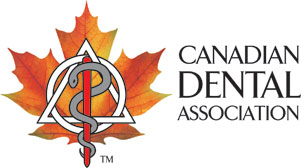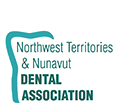Oral health
Oral health is part of your overall health. With a healthy mouth you can eat, speak and smile in comfort, which helps you feel physically, socially and mentally well. A healthy mouth helps you enjoy life.
The Canadian Dental Association supports the FDI World Dental Federation’s definition of oral health. Learn more.

Risk factors
Caring for your teeth requires more than brushing, flossing and visiting your dentist regularly. It is important to understand the risk factors that can affect your oral and overall health.
Most oral health conditions are preventable and can be treated early. Oral health can be maintained by establishing a good oral hygiene routine and by being aware of some common health and lifestyle risk factors:

Common Health Risk Factors
- Age
- Diabetes
- Medications
- Stress and anxiety
- Sleep apnea
Common Lifestyle Risk Factors
- Alcohol
- An unhealthy diet that is high in sugar
- Not taking action to prevent disease
- Smoking, using smokeless tobacco and vaping
- Smoking/ingesting cannabis
- Oral piercings/jewelry
Some risk factors, such as aging, are unavoidable. That is why it’s important to pay attention to your oral health throughout your lifetime.
You can reduce or eliminate risk factors by choosing healthier options and changing certain lifestyle habits. Any changes you make to lower your risks is an important step towards maintaining a healthy smile, disease prevention, and improving your overall health and well-being.

Disease prevention and overall health
Just like other diseases, prevention, early detection and treatment of oral diseases is important to stop any negative effects on the rest of your body.
An unhealthy buildup in your mouth can make your gums prone to bleeding. Unhealthy oral bacteria and the inflammation associated with gum disease may enter your bloodstream, which can increase your risk of other health problems.
Oral disease can affect every aspect of your life, including personal relationships and self-confidence. It can lead to pain, anxiety, disfigurement and acute/chronic infections. It can also disrupt your sleep and affect how or what you eat — all of which can impact your overall quality of life.
Keeping your mouth healthy helps it function well. It is important to look after your oral health for your overall health and well-being.

Oral hygiene
Establish and stick to a good oral hygiene routine for a healthy smile that will last you a lifetime. It is worth your effort. Good oral hygiene helps prevent tooth decay and inflammation in your gums that can become serious. Follow these tips to keep your mouth and body healthy.
Brush
Brush your teeth for 2-3 minutes, twice a day to help remove food and plaque. Brushing your teeth keeps your mouth clean and free of bacteria that leads to cavities and gum disease.
Tips:
- Use a manual or electric toothbrush to brush all areas of your teeth (i.e. the inside, outside and chewing surfaces). Start gently underneath the gums and move up.
- Do not rinse with water immediately after brushing. Spit out any excess toothpaste instead.
- Wait 30 minutes after eating before you brush to avoid damaging your enamel.
- Replace your toothbrush every 3 months. Swap out your old, frayed toothbrush for a new one that will clean your teeth and mouth properly.
Floss
Floss at least once a day, or after snacking. Flossing gets to places your toothbrush cannot reach and removes bacteria that can cause bad breath. Reduce gum disease and bad breath by removing plaque that forms along the gum line.
Tongue
Depending on what you eat, your tongue can hold food residue. Be sure to also give it a good brush or scrape to help keep your breath fresh.
Oral rinse and fluoride toothpaste
As part of your morning oral health routine, swish with an oral rinse (also known as mouthwash or a mouth rinse) once a day. This will help keep odour-causing bacteria at bay.
Tips:
- Always use mouthwashes without alcohol which can further dry and damage sensitive tissues.
- Use a toothpaste with fluoride to help fight tooth decay.
- To find the right oral health products for your needs, consult the list of products that have earned the CDA Seal. The CDA Seal helps consumers know which oral health benefit claims made by a manufacturer have been independently reviewed and are supported by scientific evidence.
Water
Choosing healthy drinks is as important as choosing healthy foods. Make water your drink of choice and reduce your intake of sugary drinks which could contribute to tooth decay.
Staying hydrated with water is the best way to keep your mouth moisturized, neutralize any leftover acid, and wash away any debris from food and beverages. Some medications may cause dry mouth, which allows bacteria to multiply faster. Ask your dentist about this.
Healthy Nutrition
A balanced and nutritious diet is good for your general health and your dental health. Without the proper nutrients, your teeth and gums can become more susceptible to decay and gum disease. See these tips for healthy nutrition, reducing sugar in your diet, and making water your drink of choice. Check out this factsheet to learn more about why it’s important to follow a balanced, low-sugar diet.
Reduce Alcohol and Plan to Stop Smoking or Vaping
Daily use of alcohol, smoking and/or vaping over time can lead to dry mouth, inflammation, enamel damage, staining and put you at risk of oral cancer. Talk to your dentist about how these common lifestyle risk factors affect your oral and overall health and make a plan to quit.

Your dentist is your health partner
One of the best ways to protect your mouth is by going to the dentist for regular check-ups and dental cleanings. Dentists and certified dental specialists are trained, skilled and regulated health professionals.
Your dentist can help keep your teeth and mouth healthy. A regular check-up allows your dentist to make sure you don’t have dental problems, remove any unhealthy buildup and reduce your risk of dental decay or gum disease.
By working with your dentist, you can also learn how to prevent oral diseases. Your regular dental appointments are important so your dentist can:
- examine your teeth, gums, and mouth
- advise how to maintain good oral health through eating a balanced, low-sugar diet, avoiding tobacco, and limiting alcohol
- educate you on how to keep your teeth and mouth healthy through good oral hygiene habits, including how to brush your teeth and floss correctly
- provide any necessary treatment
- discuss a date for your next visit
- work with you to help maintain your oral and overall health
As the leader of your oral health team, your dentist brings years of specialized education to understanding your oral health. Only dentists can examine your teeth, gums and mouth, and recognize any problems that could affect your overall health. Learn more about your dental health care team.

Helpful links
Canadian Dental Association
- COVID-19 and Mask Mouth: Tips to stay fresh under your mask
- Dental care for children
- Dental care for persons with special health care needs
- Dental care for seniors
- Flossing and brushing
- How to find a dentist
- Tips for good oral and overall health
FDI Word Dental Federation
- About oral health
- Definition of oral health (PowerPoint)
- Eat a balanced, low-sugar diet
- Practice a good oral hygiene routine (Factsheet)
- Look after your oral health for overall health (Factsheet)
- Take charge of your oral health (Factsheet)
- Action Toolkit
Government of Canada
National Cancer Institute (US)











